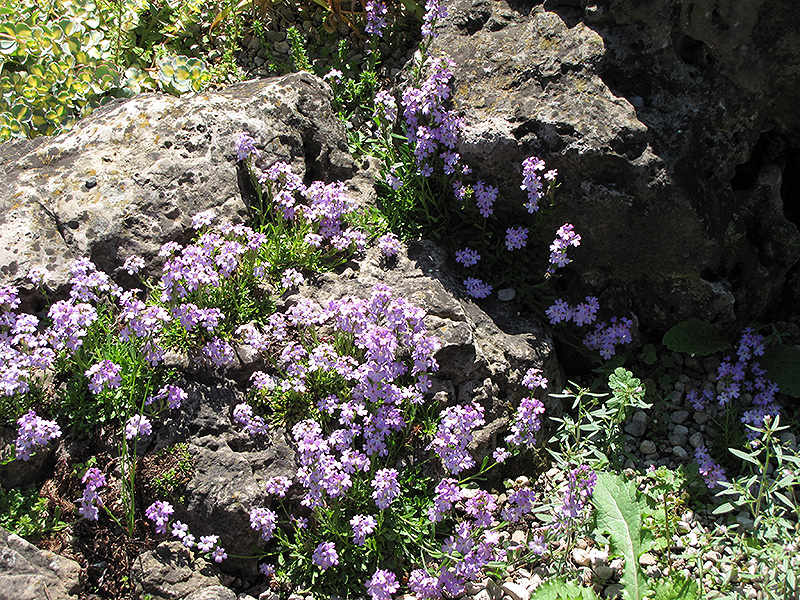Height: 6 inches
Spread: 18 inches
Sunlight:
![]()
Hardiness Zone: 3a
Other Names: Wall Cress
Description:
Captivating flowers in shades of lilac cover this low growing lacy groundcover in the spring; it is perfect for rock gardens, border edges, and quite lovely massed in sunny naturalized areas
Ornamental Features
Rock Cress is smothered in stunning lightly-scented lilac purple daisy flowers with gold eyes at the ends of the stems from mid to late spring. Its attractive small deeply cut ferny leaves remain green in color throughout the year.
Landscape Attributes
Rock Cress is a dense herbaceous evergreen perennial with a ground-hugging habit of growth. It brings an extremely fine and delicate texture to the garden composition and should be used to full effect.
This is a relatively low maintenance plant, and should only be pruned after flowering to avoid removing any of the current season's flowers. Deer don't particularly care for this plant and will usually leave it alone in favor of tastier treats. It has no significant negative characteristics.
Rock Cress is recommended for the following landscape applications;
- Rock/Alpine Gardens
- Border Edging
- General Garden Use
- Groundcover
- Container Planting
Planting & Growing
Rock Cress will grow to be only 6 inches tall at maturity, with a spread of 18 inches. Its foliage tends to remain low and dense right to the ground. It grows at a slow rate, and under ideal conditions can be expected to live for approximately 10 years. As an evegreen perennial, this plant will typically keep its form and foliage year-round.
This plant should only be grown in full sunlight. It prefers dry to average moisture levels with very well-drained soil, and will often die in standing water. It is considered to be drought-tolerant, and thus makes an ideal choice for a low-water garden or xeriscape application. It is not particular as to soil type or pH. It is somewhat tolerant of urban pollution, and will benefit from being planted in a relatively sheltered location. Consider covering it with a thick layer of mulch in winter to protect it in exposed locations or colder microclimates. This species is not originally from North America. It can be propagated by division.
Rock Cress is a fine choice for the garden, but it is also a good selection for planting in outdoor pots and containers. Because of its spreading habit of growth, it is ideally suited for use as a 'spiller' in the 'spiller-thriller-filler' container combination; plant it near the edges where it can spill gracefully over the pot. Note that when growing plants in outdoor containers and baskets, they may require more frequent waterings than they would in the yard or garden.




